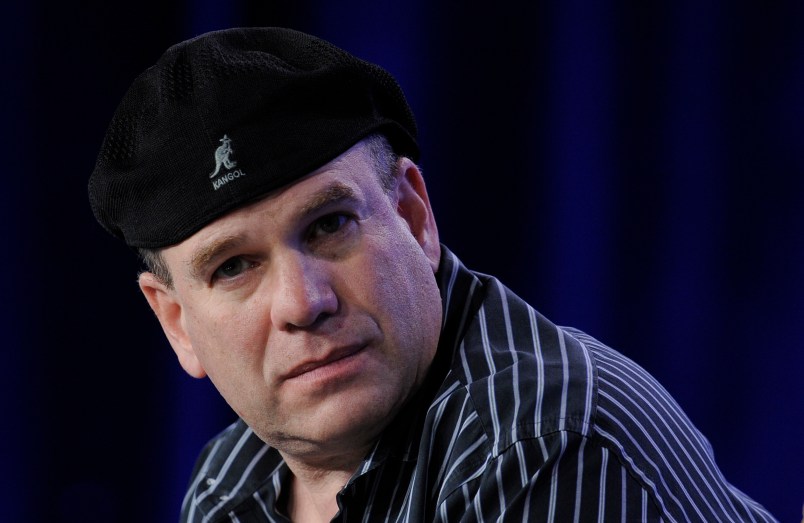David Simon, former crime reporter for the Baltimore Sun and creator of the HBO show “The Wire,” broke down the endemic issues that paved the way for the “horror show” currently plaguing Baltimore.
In a Wednesday interview with Bill Keller of The Marshall Project, Simon gave his take on Freddie Gray, a black man who died after suffering spinal cord injuries while in police custody, and the protests taking place in Baltimore.
Simon opined that “probable cause from a Baltimore police officer has always been a tenuous thing,” but noted that the drug war was what eventually let to its destruction.
“The need for police officers to address the basic rights of the people they were policing in Baltimore was minimized,” Simon said. “It was done almost as a plan by the local government, by police commissioners and mayors, and it not only made everybody in these poor communities vulnerable to the most arbitrary behavior on the part of the police officers, it taught police officers how not to distinguish in ways that they once did.”
Simon also told Keller that where before there existed a code, now all semblance of one had dissolved.
“The code was really ornate, and I’m not suggesting in any way that the code was always justifiable in any sense, but there was a code,” Simon said. “I’m talking in the vernacular of cops, not my own — but even in the vernacular of what cops secretly think is fair, this is bullshit, this is a horror show. There doesn’t seem to be much code anymore.”
During the course of the interview, Simon blamed former Baltimore Mayor and Maryland Gov. Martin O’Malley (D) for being the “stake through the heart of police procedure.” According to Simon, during his time as mayor, O’Malley, a potential 2016 Democratic presidential candidate, was so set on reducing crime that the police department learned to target individuals using “less-than-constitutional” tactics.
Simon also noted that the unrest over the death of Freddie Gray was essentially made possible because of technology and the smartphone — a “revolution in civil liberties” — which exposed the injustices and police violence.
“There’s an actual theme here that’s being made evident by the digital revolution,” Simon said. “It used to be our word against yours. It used to be said — correctly — that the patrolman on the beat on any American police force was the last perfect tyranny.”
Speaking specifically about Gray, Simon pointed out that because the code — however dysfunctional it may have been — had been abandoned, someone like Gray, who didn’t meet the usual criteria for police violence, had been beaten.
Simon said Gray shouldn’t have gotten a “rough ride” under the code police used to follow. However, he noted that someone like Gray “becomes almost plausible as a victim.” Since there’s no longer a code, everyone is fair game; Baltimore cops, he argued, forgot how to discriminate between actual criminal suspects and people who were just in their path.
“Again, that’s a department that has a diminished capacity to actually respond to crime or investigate crime, or to even distinguish innocence or guilt,” Simon said. “And that comes from too many officers who came up in a culture that taught them not the hard job of policing, but simply how to roam the city, jack everyone up, and call for the wagon.”







Click through and read the whole interview if you have a few minutes. Not sure where you could go for better insight into this stuff.
"Baltimore cops, he argued, forgot how to discriminate between actual criminal suspects and people who were just in their path.
“Again, that’s a department that has a diminished capacity to actually respond to crime or investigate crime, or to even distinguish innocence or guilt,” Simon said. “And that comes from too many officers who came up in a culture that taught them not the hard job of policing, but simply how to roam the city, jack everyone up, and call for the wagon.”"
There it is.
Except he’s wrong in one respect. Many apologists are already saying (thanks FB) that if Gray’s mother had slapped him like the one on the video maybe he’d be alive today. Sigh. Not to mention that I seem to know every single thing Gray has done in his life. Some people will choose to never believe that a victim didn’t deserve it.
So the Baltimore PD’s new slogan is, “Kill them all and let god sort them out?” Arnaud Amalric (August 1209).
I invoked him earlier today. Like B-more wants to give him another best seller.